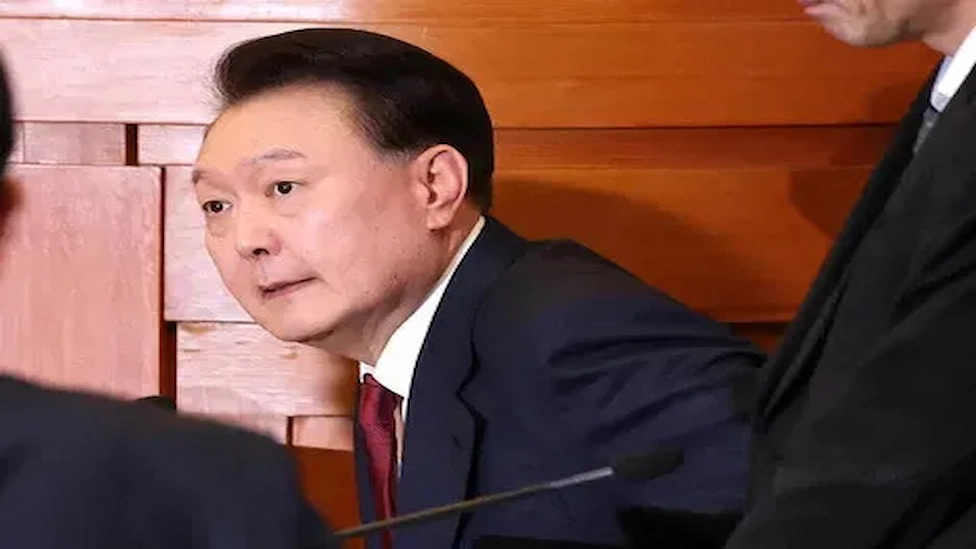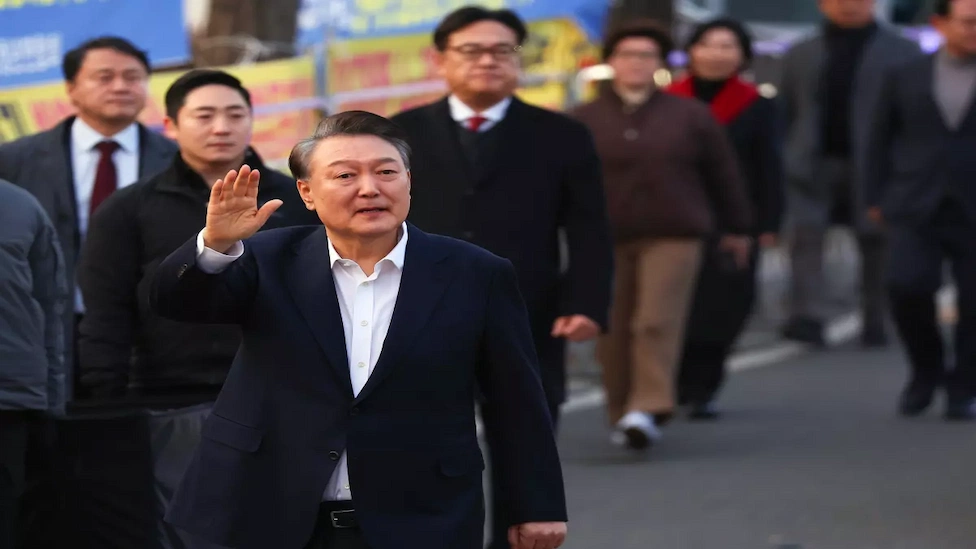Yoon Suk-yeol Insurrection Trial Begins: Former South Korean President Yoon Suk-yeol appeared in court on Monday for his Yoon Suk-yeol insurrection trial. He is accused of attempting a self-coup during his presidency. The trial threatens South Korea’s democracy. Yoon showed no remorse during the hearing.
Prosecutors argue he mobilized troops to undermine the constitution. His legal team denies the charges. The trial could last months, with weekly hearings scheduled. If convicted, Yoon may face severe penalties, including the death penalty.
Also Read | Trump Orders Semiconductor Security Probe Amid China Tariff Tensions
Yoon Suk-yeol Insurrection Trial Begins: Insights
- The trial centers on whether Yoon’s martial law declaration aimed to overthrow the constitution.
- Prosecutors claim military and police mobilization was an act of revolt.
- Yoon’s defense argues no violent intent or harm occurred.
- Witness testimonies may reveal key details about troop orders.
- The court must decide if evidence collected by investigators is admissible.
- Additional charges could follow if Yoon loses presidential immunity.
Background
Yoon Suk-yeol served as South Korea’s president for three years. His term ended abruptly after accusations of a self-coup. He declared martial law and deployed troops near the National Assembly. Critics called it an attack on democracy. An impeachment trial followed, leading to his removal.
Now, as a private citizen, he faces criminal charges. The Yoon Suk-yeol insurrection trial marks a historic moment in South Korea’s legal history.
Main Event
The Yoon Suk-yeol insurrection trial began on Monday, April 14, 2025, at Seoul Central District Court. Judge Jee Kui-youn presided over the hearing. Prosecutors read charges, followed by defense arguments. Witnesses included military officers who received controversial orders.
Yoon’s legal team claims the indictment relies on illegally gathered evidence. They argue the Corruption Investigation Office (CIO) overstepped its authority. Prosecutors disagree, stating a court-approved warrant validates their case.
Key disputes include:
- Whether martial law aimed to subvert the constitution.
- If troop mobilization was an act of violent revolt.
- The admissibility of evidence collected by the CIO.
Witness testimonies may prove crucial. One officer admitted receiving orders to “drag lawmakers out” during martial law. Another confirmed similar instructions. Yoon previously claimed martial law would last only hours. However, past court filings suggest he expected days of enforcement.

Former South Korean President Yoon Suk-yeol arrives at Seoul Central District Court for his historic insurrection trial.
Photo Credits: Pool Photo.
Also Read | South Korea Wildfire Helicopter Crash: Pilot Killed in Uiseong Disaster
Implications
The trial’s outcome could reshape South Korean politics. A conviction may deter future leaders from abusing power. However, an acquittal could weaken public trust in justice. Businesses and investors may react to political instability. The case also tests the judiciary’s independence. Citizens await answers on how democracy was nearly overturned.
Conclusion
The Yoon Suk-yeol insurrection trial will continue with weekly hearings. More witnesses and evidence will be examined. Legal experts predict a lengthy process. The court’s decision could set a major precedent. South Korea watches closely as its democracy faces a critical test.



